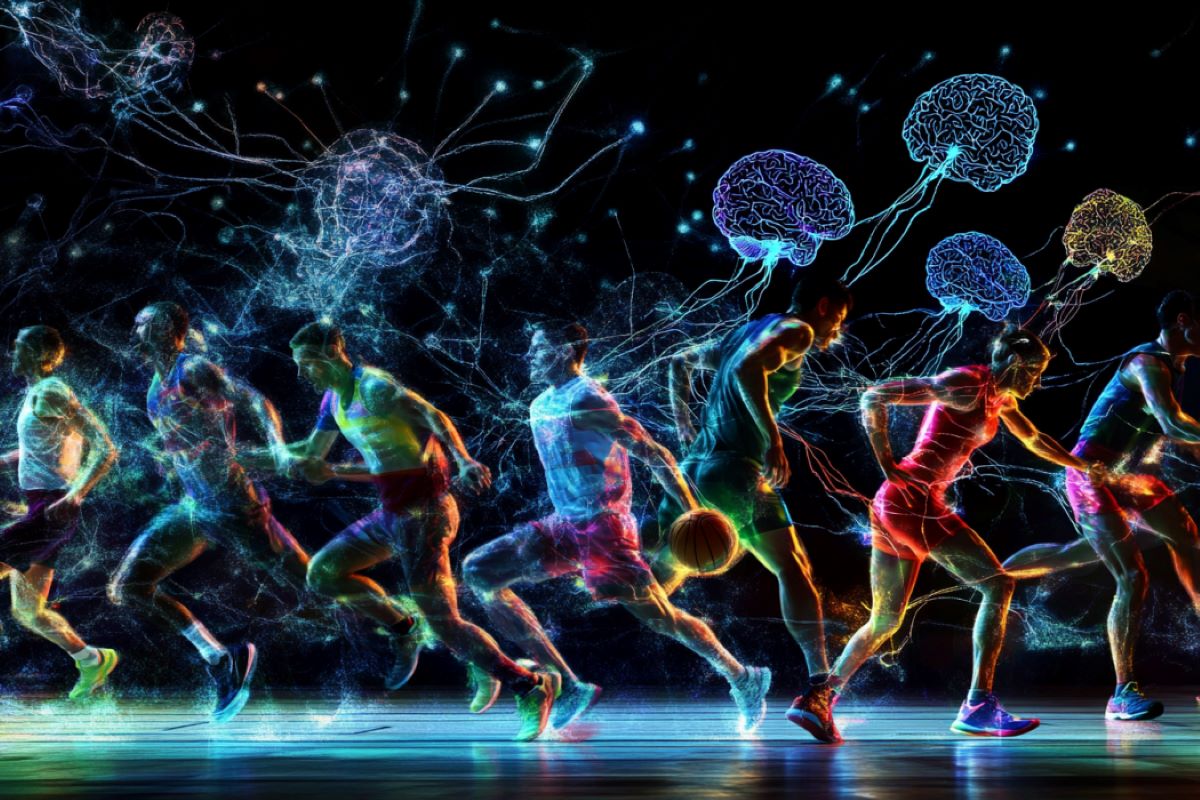Summary: A meta-analysis comparing athletes to non-athletes found that athletes consistently outperformed in working memory tasks, with the advantage most notable over sedentary individuals. The study highlighted that sports participation, regardless of type or level, is linked to enhanced cognitive function, while a sedentary lifestyle correlates with poorer memory. The research adds to growing evidence that physical activity supports brain health and cognitive aging.
Key Facts:
- Athletes display better working memory performance than non-athletes, especially when compared to sedentary individuals.
- Sports participation benefits brain health and may mitigate cognitive decline with aging.
- The findings emphasize the importance of physical activity for cognitive enhancement and healthy aging.
Source: University of Jyväskylä
In cognitive science, there has recently been increasing attention to the relationship between sports expertise and working memory. However, to date, no meta-analysis has compared the working memory performance of athletes and non-athletes.
The Active Mind group at the Department of Psychology, University of Jyväskylä, conducted a study to broadly compare the working memory performance of the two groups.

They also investigated the role of factors such as the type of sport and performance level on the results.
The working memory advantage for athletes over non-athletes was found across different types of sports and performance levels. Interestingly, this advantage was more pronounced when athletes were contrasted with a sedentary population, compared to the analysis where the sedentary population was excluded from the non-athlete reference group.
Doctoral researcher Chenxiao Wu states that most of the studies included in this meta-analysis were well-conducted, with a low risk of bias, and no signs of publication bias.
These findings show that there is a consistent association between sports and better working memory performance, while a sedentary lifestyle appears to be associated with poorer working memory.
Piia Astikainen, associate professor and leader of the research team, says their group has previously studied the effects of ageing on cognitive function and brain function and found that a physically active lifestyle can partly mitigate the negative effects of ageing on these.
The current results in athletes add to the evidence supporting the benefits of sports on human cognition and highlight the importance of physical activity in promoting brain health.
The study is part of the SportsFace project and the PhD research of Chenxiao Wu supervised by associate professor Piia Astikainen.
The SportsFace project aims to explore the effects of sports on cognitive function and face perception using electrophysiological and behavioral performance measures. The findings will further our understanding of the relationship between sports, working memory and social cognition.
About this memory research news
Author: Kirke Hassinen
Source: University of Jyväskylä
Contact: Kirke Hassinen – University of Jyväskylä
Image: The image is credited to Neuroscience News
Original Research: Open access.
“Comparison of working memory performance in athletes and non-athletes: a meta-analysis of behavioural studies” by Piia Astikainen et al. Memory
Abstract
Comparison of working memory performance in athletes and non-athletes: a meta-analysis of behavioural studies
The relationship between sports expertise and working memory (WM) has garnered increasing attention in experimental research. However, no meta-analysis has compared WM performance between athletes and non-athletes.
This study addresses this gap by comparing WM performance between these groups and investigating potential moderators. A comprehensive literature search identified 21 studies involving 1455 participants from seven databases, including PubMed, Embase, and ProQuest.
Athletes primarily engaged in basketball, football, and fencing, while non-athletes included some identified as sedentary. The risk of bias assessment indicated low risk across most domains.
Publication bias, assessed through a funnel plot and statistical tests, showed no significant evidence of bias. The forest plot, using a random effects model, revealed moderate heterogeneity.
The overall effect size indicated a statistically significant, albeit small, advantage for athletes over non-athletes (Hedges’ g = 0.30), persisting across sports types and performance levels.
Notably, this advantage was more pronounced when athletes were contrasted with a sedentary population (Hedges’ g = 0.63), compared to the analysis where the sedentary population was excluded from the non-athlete reference group (Hedges’ g = 0.15).
Our findings indicate a consistent link between sports expertise and improved WM performance, while sedentary lifestyles appear to be associated with WM disadvantages.






